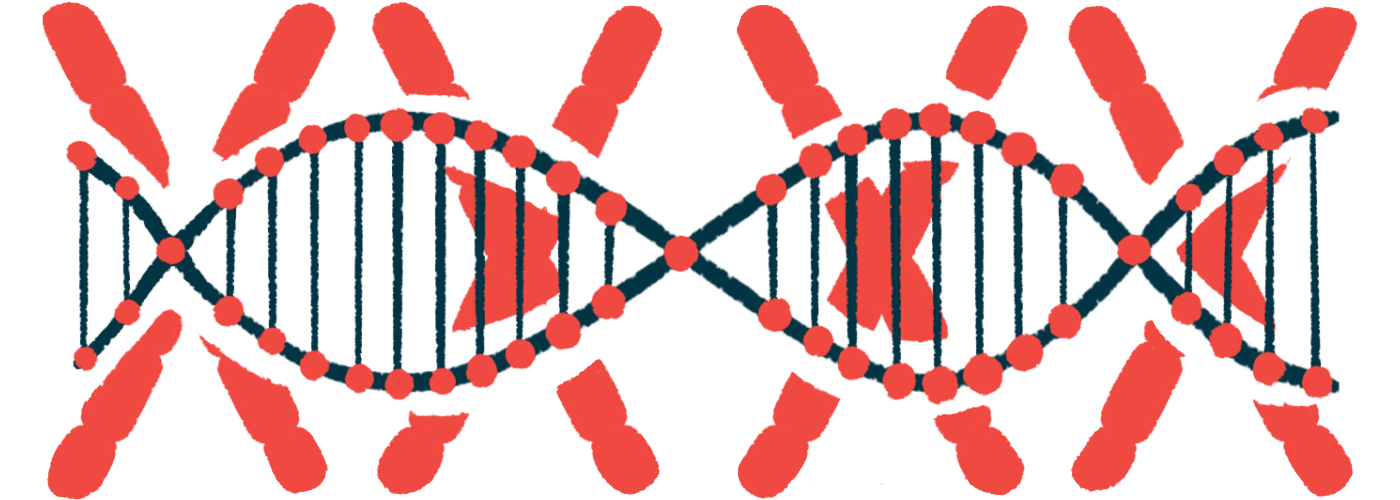Arrowhead asking to open Phase 1/2a trial of ARO-DUX4 for FSHD
Dose-escalating safety study to enroll type 1 patients in New Zealand
Written by |

Arrowhead Therapeutics has asked for permission to launch a clinical trial of ARO-DUX4, an experimental RNA-based medicine for facioscapulohumeral muscular dystrophy (FSHD) type 1, in New Zealand.
The company’s application, filed with the New Zealand Medicines and Medical Devices Safety Authority, will be reviewed by the Standing Committee on Therapeutic Trials, part of the country’s Health Research Council.
If given the green light, the company will move forward with a planned Phase 1/2a trial, being called ARODUX4-1001. It is designed to test escalating doses of ARO-DUX4 in up to 52 adults with FSHD type 1 to determine which dose is safest.
FSHD clinical trial into therapy blocking DUX4 protein production
The trial also will test the medicine’s pharmacokinetics — how it moves into, through, and out of the body — and pharmacodynamics, or its effects on the body.
“We believe ARO-DUX4 has the potential to be an impactful new medicine for patients,” Chris Anzalone, PhD, president and CEO of Arrowhead, said in a company press release.
The DUX4 gene is found near the end of chromosome 4 in a region called D4Z4. Normally, DUX4 stays switched off in muscle cells, but in FSHD, it is switched on and abnormally produces a protein called DUX4.
In FSHD type 1, the most common form of the disease, this happens due to a shorter D4Z4 region with fewer DNA sequence repeats than are usual. Mutations prevent DUX4 from being switched off.
The DUX4 protein is harmful to muscles (myotoxic) and causes weakness in muscles of the face, shoulders, and upper arms. This results in the symptoms of FSHD, which worsen over time.
RNA interference (RNAi) is a mechanism used by cells to control which proteins are made and at what time. It uses short strands of RNA that bind to and shut down messenger RNA, a molecule that carries the genetic information needed to make proteins.
ARO-DUX4 makes use of this mechanism to control the activity of DUX4. The therapy is designed to pair with the gene’s messenger RNA and shut it down, which is expected to block the production of DUX4. This should reduce muscle damage and improve muscle function.
“ARO-DUX4 engages the RNA interference pathway to selectively inhibit DUX4 expression and is a promising strategy to reverse the downstream myotoxicity of DUX4 and potentially enable stabilization or improvement in muscle function in patients,” Anzalone said.
ARO-DUX4 showed potential in animal models, patient muscle fiber studies
Delivered using the company’s Targeted RNAi Molecule (TRiM) platform, short strands of RNA were reported to reach 76% to 99% of muscle fibers in the gastrocnemius, the largest muscle in the calf, after a single into-the-vein injection in mice.
In muscle fibers derived from FSHD patients, TRiM-delivered ARO-DUX4 reduced the activity of DUX4 and its target genes — referred to as knocked down genes — in a dose-dependent manner. This implies that higher doses of ARO-DUX4 have greater effects.
“ARO-DUX4 achieved dose-dependent knockdown of DUX4 and deep reduction of DUX4 target gene expression [activity],” the researchers wrote in a data presentation at the FSHD Society’s 2021 International Research Congress.
In a mouse model of FSHD, where there is expression of human DUX4 protein, ARO-DUX4 prevented and reversed the expression of DUX4 and its target genes in the diaphragm (a key muscle for breathing), gastrocnemius, trapezius (neck, shoulders and back), and triceps (arm) muscles.
Prevention was achieved by injecting ARO-DUX4 early, soon after FSHD induction in the animals, whereas reversal was achieved by injecting ARO-DUX4 10 days after the mice began to make human DUX4 protein.
Compared with a placebo, ARO-DUX4 also prevented and reversed weight loss and the formation of scar-like tissue, or fibrosis, in muscles. Treated mice stayed longer on a rotating rod, indicating better muscle function.
“Preclinical development of ARO-DUX4 has produced very promising results that we believe strongly support advancement into clinical testing,” James Hamilton, MD, chief of discovery and translational medicine at Arrowhead, said in a 2021 company press release.






